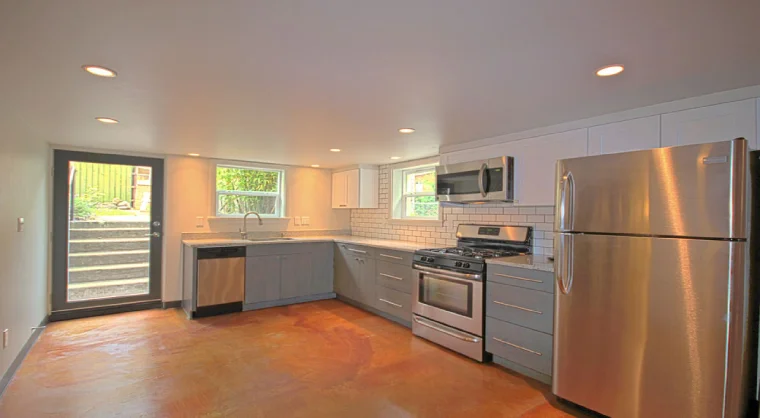- City living offers career opportunities, convenience, and cultural variety, but comes with higher costs, noise, and stress.
- Country living provides peace, affordability, and a closer connection to nature, but may limit access to healthcare, education, and job opportunities.
- Mental health and personality play a big role—extroverts may thrive in the city, while introverts often recharge better in rural areas.
- Families face trade-offs: cities offer education and activities, while the countryside provides safety, space, and community closeness.
- Cost of living is generally lower in the country, though hidden expenses like long commutes can arise.
- Neither lifestyle is universally better—the right choice depends on your values, priorities, and long-term goals.
Deciding where to live is one of the most important life choices anyone can make. The environment you choose impacts your career, relationships, health, finances, and overall quality of life. For many, the debate between country and city living is ongoing. Some crave the fast-paced lifestyle and endless opportunities found in urban centers, while others dream of wide-open spaces, peace, and a slower pace of life in rural areas.
But which lifestyle truly fits you? The answer depends on your priorities, personality, and future goals. This article breaks down the pros and cons of both, providing insights that will help you make an informed decision about where you belong.
Understanding the Appeal of City Living
Cities are often described as the beating hearts of modern society. They attract people from different cultures, backgrounds, and industries, creating vibrant hubs of activity and growth. Living in a city usually means you have access to countless job opportunities, world-class amenities, and social experiences that rural life cannot match.
The appeal of city life often lies in convenience. Almost everything is within reach—restaurants, shopping centers, healthcare facilities, and entertainment venues. If you thrive in an environment where energy and innovation never sleep, the city may align with your personality. However, this lifestyle also comes with challenges such as higher living costs, congestion, and reduced access to nature.
Why Do People Choose Country Living?

Country living, on the other hand, offers an entirely different rhythm. With wide-open landscapes, less noise, and a stronger connection to nature, rural areas provide the peace and quiet many people crave. Those who value tranquility, personal space, and slower-paced routines often find rural life deeply rewarding.
The countryside also fosters stronger community ties. Neighbors often know each other by name and lend a hand when needed, creating a sense of belonging that can sometimes be hard to find in cities. Additionally, rural living typically comes with lower housing costs and less daily stress. Yet, access to healthcare, education, and job opportunities may be limited, which could pose challenges for some individuals.
Country vs City Living: A Side-by-Side Comparison
Before making a decision, it helps to directly compare the key aspects of country and city life. This breakdown highlights the main differences:
- Cost of Living
- City: Higher rent, utilities, and transportation costs.
- Country: Generally more affordable housing and lower daily expenses.
- Job Opportunities
- City: Wide variety of industries, higher salaries, and more career growth options.
- Country: Fewer corporate opportunities, often centered on agriculture, small businesses, or remote work.
- Social Life
- City: Vibrant nightlife, cultural events, and diverse communities.
- Country: Closer-knit communities with fewer entertainment options.
- Environment
- City: More pollution, noise, and limited green spaces.
- Country: Cleaner air, open spaces, and a stronger connection to nature.
- Healthcare & Education
- City: Greater access to hospitals, specialists, and top-tier universities.
- Country: Fewer options, often requiring travel for specialized services.
How Does Country and City Living Affect Mental Health?
Mental health is deeply influenced by our surroundings. City living often offers excitement, stimulation, and countless social opportunities, but it can also lead to stress. Noise, long commutes, crowded spaces, and high costs contribute to burnout and anxiety for many residents.
In contrast, the country provides quietness and a slower pace, which can promote relaxation and reduce stress. The natural environment—trees, open skies, and greenery—has been scientifically linked to improved mental well-being. However, isolation and lack of social opportunities in rural areas can lead to loneliness, especially for those who thrive on social interaction.
Ultimately, your personality type matters. Extroverts may feel energized in cities, while introverts often recharge better in peaceful rural settings. Recognizing how your mental health aligns with your environment can guide your decision.
Career Opportunities: Where Do You Thrive?
For many, career growth is the main factor in deciding where to live. Cities naturally attract ambitious professionals who want to climb the corporate ladder or work in specialized industries such as technology, finance, and healthcare. The concentration of companies and resources creates more chances for professional advancement and networking.
In rural areas, opportunities may be more limited. Jobs often center around agriculture, hospitality, trades, or small businesses. However, the rise of remote work has bridged this gap. Professionals in many fields can now enjoy the serenity of rural life while still earning income from global opportunities. If career growth is your top priority, cities may offer more options, but if you value balance, country living with remote work might be ideal.
Raising a Family: Country vs City Living
When it comes to raising children, both lifestyles offer unique advantages. Cities provide access to high-quality schools, extracurricular activities, museums, and cultural experiences that enrich a child’s upbringing. However, children in cities may also face challenges like limited outdoor play areas, safety concerns, and overstimulation.
The countryside, meanwhile, provides space for kids to explore nature, play outdoors, and grow up in a calmer environment. Families in rural areas often value safety, close-knit communities, and a slower pace that fosters family bonding. Yet, access to diverse educational opportunities may be limited compared to city environments.
For parents, the decision often comes down to choosing between convenience and opportunities in cities versus safety and simplicity in rural areas.
Cost of Living: Which Is More Affordable?
One of the biggest differences between country and city living is the cost of living. Cities are notoriously expensive, with higher rent, property prices, and daily expenses such as transportation and dining. Utilities, healthcare, and insurance also tend to be pricier in urban areas due to demand.
In the countryside, housing is generally more affordable, and residents often enjoy lower costs on food, transportation, and services. Self-sufficiency, like growing food or having more land, can further reduce expenses. However, rural living may involve hidden costs, such as traveling longer distances for work or services.
If financial security is your primary concern, country living might be the better option. But for those willing to pay for convenience and opportunity, city life may justify the expense.
Social Life and Community: Where Do You Belong?
Cities are vibrant, diverse, and buzzing with activity. From concerts and theaters to international cuisines and cultural events, urban areas provide endless opportunities for social engagement. If you enjoy meeting new people, trying new experiences, and having constant entertainment, city life can be highly rewarding.
In contrast, rural communities emphasize depth over breadth. While there may be fewer people and events, relationships often run deeper. Neighbors look out for one another, and communities foster a sense of belonging that can be harder to achieve in anonymous urban settings.
The right environment depends on your social preferences. Do you prefer variety and excitement, or do you value close-knit, lasting connections?
Healthcare and Education: Which Offers Better Access?
Healthcare and education are vital considerations when deciding where to live. Cities have the advantage of offering a wide range of hospitals, specialists, and healthcare services, as well as some of the best universities and schools. Access is typically fast and reliable.
In rural areas, healthcare facilities are fewer and may require long travel times. Emergency response times can also be slower. Educational options may be limited, with fewer schools and extracurricular programs. However, smaller class sizes in rural schools can provide personalized attention that city schools often lack.
This trade-off highlights the importance of your stage of life. For families or individuals with healthcare needs, cities may be more practical, while others may accept rural limitations in exchange for peace of mind and lower costs.
Environmental Quality: City Noise vs Country Serenity
The environment is another defining factor. City life often involves exposure to air pollution, noise, and traffic congestion. Green spaces exist but are limited, and access to nature typically requires planned trips. While cities are centers of progress, they are also hotspots for environmental stress.
On the other hand, country living provides cleaner air, quieter surroundings, and direct contact with nature. The presence of trees, fields, and open skies can promote a sense of calm and connection. Rural areas also tend to have lower crime rates and fewer environmental hazards.
If your health and lifestyle thrive in fresh air and silence, the country may be the better choice. However, if you value convenience and cultural experiences, cities might outweigh these drawbacks.
Which Lifestyle Truly Fits You?

Choosing between country and city living is ultimately a personal decision shaped by your values and long-term goals. Neither lifestyle is inherently better than the other—they simply cater to different needs.
- If you crave opportunity, diversity, and convenience, city life may be your best fit.
- If you value peace, affordability, and a close connection with nature, rural living might feel like home.
- If you want a balance, remote work now makes it possible to enjoy the country while still tapping into urban opportunities.
By carefully evaluating your priorities—whether they are career, family, health, finances, or social life—you can choose the environment that enhances your happiness and supports your goals.
Conclusion
The debate between country vs city living has no universal winner. Both offer unique benefits and challenges that appeal to different lifestyles and personalities. Cities shine with opportunities, diversity, and modern conveniences, while rural areas stand out with tranquility, affordability, and a stronger connection to nature.
When choosing where to live, ask yourself: What matters most to me? Once you identify your core values and long-term aspirations, the decision becomes clearer. Whether you end up under the city lights or beneath the starry skies of the countryside, the key is finding the environment that truly fits who you are.





